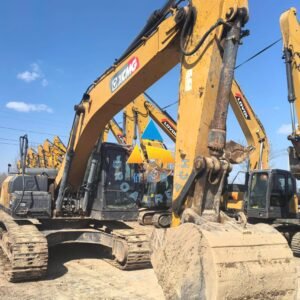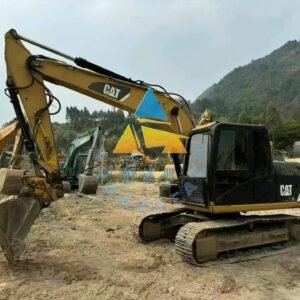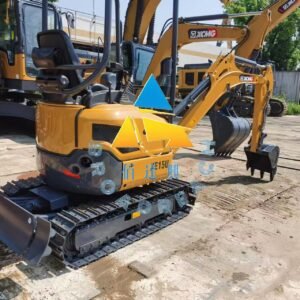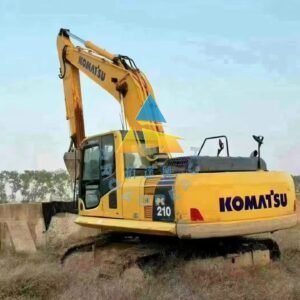BroadReach Construction Machinery Co., Ltd

Understanding the Differences: Wheeled vs. Tracked Excavators
1. Wheeled Excavators: Mobility and Versatility
Wheeled excavators, also known as rubber-tired excavators, offer a unique set of benefits that make them suitable for certain types of work.

Advantages of Wheeled Excavators:
- Mobility: Wheeled excavators are designed for easy transportation. They can be driven on roads and highways, which is a significant advantage when moving between job sites.
- Versatility: These machines can be used both on and off-road, making them ideal for urban construction and landscaping projects where mobility and flexibility are key.
- Lower Ground Pressure: With their wide wheelbase, wheeled excavators exert less ground pressure than tracked machines, which is beneficial for working on soft or sensitive ground.
- Fuel Efficiency: Wheeled excavators generally consume less fuel than their tracked counterparts, leading to lower operating costs.
Disadvantages of Wheeled Excavators:
- Limited Terrain: While they excel on hard surfaces, wheeled excavators may struggle on rough or uneven terrain, limiting their use in certain construction environments.
- Lower Traction: Compared to tracked excavators, wheeled models offer less traction, which can be a disadvantage in muddy or slippery conditions.
2. Tracked Excavators: Power and Stability
Tracked excavators are the workhorses of the construction industry, known for their power and stability.

Advantages of Tracked Excavators:
- Stability: Tracked excavators provide excellent stability on uneven terrain, making them ideal for heavy lifting and digging tasks.
- High Traction: The tracked system offers superior traction, allowing these machines to work effectively in muddy or slippery conditions.
- Ground Protection: The distributed weight of tracked excavators reduces ground damage, making them suitable for sensitive environments like wetlands or historical sites.
- Powerful Lifting: Tracked excavators are often more powerful than wheeled models, with greater lifting capacities and breakout forces.
Disadvantages of Tracked Excavators:
- Limited Mobility: Tracked excavators cannot be driven on public roads without special permits, which can complicate transportation between job sites.
- Higher Fuel Consumption: Due to their weight and power, tracked excavators consume more fuel than wheeled models, increasing operational costs.
- Ground Pressure: While they protect sensitive ground, their higher ground pressure can damage surfaces like pavements and roads.
3. Conclusion: Choosing Between Wheeled and Tracked Excavators
The choice between a wheeled and tracked excavator depends on the specific requirements of your project. If mobility, fuel efficiency, and versatility are your priorities, a wheeled excavator may be the better choice. However, if you need stability, high traction, and powerful lifting capabilities, a tracked excavator is likely the right fit.
Ultimately, the decision should be based on a careful consideration of the project’s terrain, the nature of the work, and the logistical implications of moving the machine. By understanding the differences between wheeled and tracked excavators, you can select the one that best meets your project’s needs.






